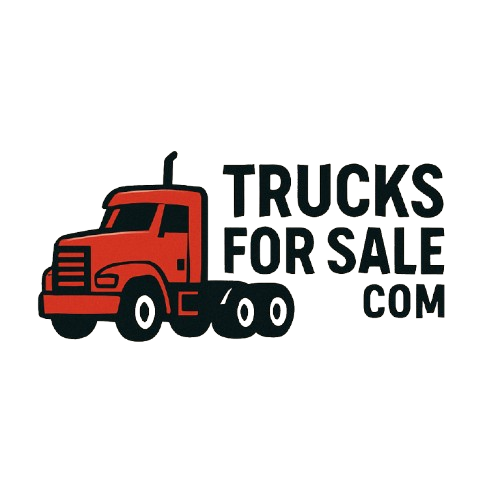
Heavy Trucks for Sale in California: A Comprehensive Guide to Navigating the Golden State’s Truck Market
California, with its vast economy, bustling ports, extensive agricultural lands, and diverse industries, stands as a pivotal hub for logistics and transportation in the United States. At the heart of this intricate network are heavy trucks – the workhorses that tirelessly move goods, materials, and equipment across the state and beyond. Whether you’re a seasoned fleet owner looking to expand, a new owner-operator venturing into the industry, or a business seeking to acquire specialized machinery, understanding the landscape of heavy trucks for sale in California is crucial. This comprehensive guide will delve into every aspect of purchasing a heavy truck in the Golden State, from the unique regulatory environment to the types of vehicles available, ensuring you make an informed and strategic investment.
The California Trucking Landscape: Why Buying Here Matters
California’s economy, the fifth largest in the world, generates immense demand for freight movement. From the massive container ports of Los Angeles and Long Beach to the agricultural valleys and the tech hubs of Silicon Valley, goods are constantly in motion. This robust demand makes California a vibrant market for heavy trucks, offering a wide array of options for buyers.
However, purchasing a heavy truck in California comes with a distinct set of considerations, primarily due to the state’s stringent environmental regulations. The California Air Resources Board (CARB) has implemented some of the most rigorous emissions standards in the nation, significantly impacting the types of trucks that can legally operate within the state. These regulations, while designed to improve air quality, add a layer of complexity to the buying process, making it imperative for buyers to be well-versed in compliance requirements. The sheer volume of trucks operating in California also means a larger inventory of both new and used vehicles, potentially leading to competitive pricing, but also requiring careful vetting to ensure regulatory adherence.
Types of Heavy Trucks Available in California
Heavy trucks, generally defined as commercial vehicles with a gross vehicle weight rating (GVWR) of 26,001 pounds or more (Class 7 and Class 8), come in various configurations, each designed for specific tasks. When looking for heavy trucks for sale in California, you’ll encounter a diverse range:
Class 8 Trucks (33,001 lbs GVWR and above)
These are the most common heavy trucks used for long-haul and heavy-duty applications.
- Tractor Units:
- Day Cabs: Designed for local and regional hauling, these trucks lack a sleeper berth and are ideal for jobs where the driver returns home daily. They are often used for port drayage, construction, or local deliveries.
- Sleeper Cabs: Equipped with sleeping compartments, these are built for long-haul transportation, allowing drivers to rest on extended trips. They range from basic single bunks to luxurious double bunks with amenities.
- Straight Trucks (Rigid Trucks): The cab and trailer are integrated into a single unit.
- Box Trucks/Dry Van Trucks: Enclosed cargo areas, commonly used for moving furniture, general freight, or refrigerated goods (refrigerated box trucks).
- Flatbed Trucks: Open cargo beds, perfect for transporting oversized or irregularly shaped loads like construction materials, machinery, or steel.
- Dump Trucks: Equipped with an open-box bed that can be raised to dump loose material, essential for construction, mining, and landscaping.
- Refuse Trucks (Garbage Trucks): Specialized vehicles for collecting and compacting waste.
- Tanker Trucks: Designed to transport liquids (water, fuel, chemicals) or gases.
- Crane Trucks: Trucks fitted with a crane for lifting and moving heavy objects.
Popular Brands
You’ll find a strong presence of major heavy truck manufacturers in California, including:
- Freightliner: Known for fuel efficiency and diverse models.
- Peterbilt: Valued for classic styling, durability, and strong resale value.
- Kenworth: Renowned for driver comfort, reliability, and robust construction.
- Volvo: Emphasizes safety, fuel efficiency, and advanced technology.
- Mack: Praised for ruggedness and power, especially in vocational applications.
- International: Offers a broad range of trucks for various applications.
- Western Star: Favored for heavy-duty and vocational tasks due to their robust build.
Key Considerations When Buying a Heavy Truck in California
Purchasing a heavy truck is a significant investment. In California, several unique factors must be meticulously evaluated:
-
CARB Compliance: The Golden Rule: This is arguably the most critical factor. California has strict regulations on diesel emissions.
- Truck and Bus Regulation: Phased out older, higher-emitting trucks. Most heavy-duty diesel trucks operating in California must have a 2010 model year engine or newer, or be equipped with a CARB-verified diesel particulate filter (DPF).
- TRUCRS (Truck and Bus Regulation Compliance Reporting System): All affected vehicles must be reported to CARB.
- Drayage Truck Regulation: Specific rules apply to trucks operating at ports and rail yards.
- Zero-Emission Vehicle (ZEV) Mandates: California is pushing for ZEV trucks, with future regulations set to mandate electric or hydrogen fuel cell trucks for certain applications.
- Actionable Advice: Always verify a truck’s CARB compliance status using its VIN on the CARB website or by consulting a CARB specialist. Buying a non-compliant truck can lead to significant fines and inability to register or operate the vehicle in California.
-
Vehicle Condition & Maintenance History:
- Pre-Purchase Inspection (PPI): Always get an independent, qualified mechanic to inspect the truck thoroughly, including engine, transmission, axles, brakes, tires, and electrical systems.
- Maintenance Records: Request detailed service logs. A well-maintained truck indicates responsible ownership and can save you from costly repairs down the line.
- Mileage & Engine Hours: High mileage or hours aren’t necessarily deal-breakers if the truck has been meticulously maintained, but they will impact resale value and potential lifespan.
-
Application-Specific Needs:
- What will you haul? Determine the type of cargo, its weight, and dimensions.
- Where will you operate? Long-haul, regional, local, off-road, urban? This dictates engine size, transmission type, axle configuration (e.g., 6×4, 4×2), and cab style (sleeper vs. day cab).
- Horsepower and Torque: Match these to your anticipated loads and routes (e.g., higher HP for mountain passes).
- Transmission: Manual transmissions offer more control and better fuel economy for experienced drivers, while automated manual transmissions (AMTs) provide ease of use and are increasingly popular.
-
Budget & Financing:
- New vs. Used: New trucks offer warranties, the latest technology, and guaranteed CARB compliance but come at a premium. Used trucks are more affordable but require more diligent inspection.
- Total Cost of Ownership (TCO): Factor in not just the purchase price but also fuel, insurance, maintenance, repairs, tires, registration, and potential financing costs.
- Financing: Explore options from traditional banks, equipment lenders, and dealership financing. Be prepared with a solid business plan and credit history.
-
Seller Reputation:
- Authorized Dealerships: Often offer warranties, financing, and certified used trucks.
- Used Truck Dealerships: Specializing in pre-owned vehicles; check reviews and reputation.
- Private Sellers: Can offer lower prices but come with higher risk; buyer beware.
-
Title & Registration: Ensure the title is clear and transferable. Understand California DMV requirements for commercial vehicle registration, including weight fees and compliance documentation.
Where to Find Heavy Trucks for Sale in California
California’s vast market means numerous avenues for finding your next heavy truck:
- Authorized Dealerships: Major brands like Freightliner, Peterbilt, Kenworth, and Volvo have extensive dealership networks across California. They offer new trucks, certified pre-owned options, financing, parts, and service.
- Used Truck Dealerships: Many independent dealerships specialize solely in pre-owned heavy trucks, often offering a wider variety of brands and models at competitive prices.
- Online Marketplaces:
- Industry-Specific Sites: TruckPaper.com, CommercialTruckTrader.com, My Little Salesman, and Ritchie Bros. (for auctions) are excellent resources with large inventories.
- General Marketplaces: eBay Motors and Craigslist can list trucks, but require extreme caution due to potential scams and misrepresentation.
- Auctions: Ritchie Bros., IronPlanet, and local public auctions frequently list heavy trucks. Auctions can offer good deals but require quick decision-making and often sell vehicles "as-is," making a pre-inspection crucial.
- Direct from Fleet Sales: Larger trucking companies or construction firms sometimes sell off older, well-maintained vehicles from their fleets directly, often at competitive prices.
The Buying Process: A Step-by-Step Guide
- Define Your Needs & Budget: Clearly outline the truck type, specifications, and maximum budget, including TCO.
- Research CARB Compliance: Before you even look at trucks, understand the current CARB regulations and how they apply to your intended purchase.
- Search for Trucks: Utilize online marketplaces, visit dealerships, and attend auctions. Filter by location, type, year, and price.
- Initial Vetting: Contact sellers, ask detailed questions about the truck’s history, specifications, and most importantly, its CARB compliance status. Request VIN.
- Professional Inspection: Arrange for an independent mechanic to perform a thorough pre-purchase inspection. This is non-negotiable for used trucks.
- Review Documentation: Examine the title, maintenance records, emissions test results, and any CARB compliance documentation. Ensure the VIN on the documents matches the truck.
- Negotiate Price: Based on your research, inspection findings, and market value, negotiate a fair price.
- Secure Financing: If not paying cash, finalize your financing arrangements.
- Complete Paperwork: Ensure a proper bill of sale is drafted, including VIN, sale price, and condition. Understand the process for title transfer.
- Arrange Transport/Pickup: Decide how you will get the truck to its operational base.
- Register with California DMV: Submit all necessary paperwork, including proof of ownership, emissions compliance, and pay registration fees. Be prepared for potential weight fees based on the truck’s GVWR.
Challenges and Solutions
- Challenge: CARB Compliance Complexity.
- Solution: Prioritize buying trucks with 2010 or newer engines, or those already verified as CARB compliant. Consult CARB’s website or a specialist for clarity. Avoid out-of-state non-compliant trucks unless you have a clear plan for upgrades (which can be very costly).
- Challenge: High Upfront Cost.
- Solution: Explore diverse financing options, consider well-maintained used trucks, or investigate leasing agreements that can offer lower monthly payments and flexibility.
- Challenge: Finding the Right Truck for Specific Needs.
- Solution: Be highly specific in your search criteria. Utilize multiple online platforms and consult with experienced truck salespeople who understand vocational applications. Networking within the industry can also yield valuable leads.
- Challenge: Maintenance & Downtime.
- Solution: Factor in regular preventative maintenance as part of your TCO. Consider extended warranties for peace of mind. Build relationships with reliable heavy truck service centers to minimize downtime when repairs are needed.
Estimated Price Ranges for Heavy Trucks in California
Prices for heavy trucks vary dramatically based on type, year, mileage, condition, brand, and specific features. CARB compliance significantly impacts values, especially for older models.
| Truck Type & Condition | Engine Model Year | Estimated Price Range (USD) | Notes |
|---|---|---|---|
| New Class 8 Tractor (Day Cab) | 2024-2025 | $150,000 – $220,000+ | Latest technology, full warranty, CARB compliant. |
| Used Class 8 Tractor (Day Cab) | 2018-2023 (CARB Compliant) | $60,000 – $120,000 | Good condition, lower mileage. Price varies heavily with year and condition. |
| New Class 8 Tractor (Sleeper Cab) | 2024-2025 | $180,000 – $280,000+ | For long-haul operations. Top-tier models can exceed $300k. |
| Used Class 8 Tractor (Sleeper Cab) | 2018-2023 (CARB Compliant) | $75,000 – $150,000+ | Higher mileage options may be lower. |
| New Straight Truck (Box Truck) | 2024-2025 | $90,000 – $180,000+ | Depending on size, body type (dry van, reefer), and features. |
| Used Straight Truck (Box Truck) | 2016-2022 (CARB Compliant) | $40,000 – $100,000 | Varies by mileage, condition, and specialized equipment (e.g., lift gate, refrigeration). |
| New Dump Truck | 2024-2025 | $180,000 – $300,000+ | High demand in construction. Price depends on axle configuration, body material, and capacity. |
| Used Dump Truck | 2016-2022 (CARB Compliant) | $80,000 – $180,000+ | Vocational trucks often hold value due to specialized equipment. |
| New Flatbed Truck | 2024-2025 | $160,000 – $250,000+ | Varies by capacity and specific chassis. |
| Used Flatbed Truck | 2016-2022 (CARB Compliant) | $70,000 – $140,000 | Good for construction, oversized loads. |
| Older (Non-CARB Compliant) Trucks | Pre-2010 (engines) | $10,000 – $50,000 | NOT recommended for CA operation. Only for out-of-state use or parts. |
Note: These are estimated ranges and can fluctuate based on market demand, economic conditions, and individual truck specifications. Always get a detailed quote.
Frequently Asked Questions (FAQ)
Q1: What is CARB compliance and why is it so important when buying a truck in California?
A1: CARB (California Air Resources Board) compliance refers to meeting California’s stringent diesel emissions regulations. It’s crucial because non-compliant heavy-duty diesel trucks cannot be legally registered or operated in California, leading to significant fines and operational restrictions. Most heavy-duty diesel trucks operating in California must have a 2010 model year engine or newer, or be equipped with a CARB-verified diesel particulate filter (DPF).
Q2: Can I buy an out-of-state truck and register it in California?
A2: Yes, but it must meet California’s emissions standards, regardless of where it was purchased. If the truck’s engine is older than 2010, it will likely need costly retrofits (if available and verified by CARB) or will not be allowed to register. Always verify CARB compliance before purchasing an out-of-state truck.
Q3: What’s the best time to buy a heavy truck?
A3: Like cars, year-end (November-December) can be a good time as dealerships try to clear inventory. New model year releases (often in late summer/fall) can also lead to deals on previous year’s models. However, the best time ultimately depends on your specific needs and market conditions.
Q4: Should I buy a new or used heavy truck?
A4: New trucks offer warranties, the latest technology, and guaranteed CARB compliance but come at a higher price. Used trucks are more affordable, but require diligent inspection, and you must verify their CARB compliance. Your budget, operational needs, and risk tolerance will guide this decision.
Q5: What financing options are available for heavy trucks?
A5: Options include traditional bank loans, specialized equipment financing companies, and dealership financing. Some companies also offer leasing options. Interest rates and terms will depend on your credit score, business history, and the age/value of the truck.
Q6: How do I check a truck’s history before buying?
A6: Always request a VIN (Vehicle Identification Number) and use it to run a vehicle history report (e.g., through Carfax, RigDig, or similar services). This can reveal accident history, odometer discrepancies, prior ownership, and service records. Crucially, verify the VIN with CARB’s online database.
Conclusion
Acquiring a heavy truck in California is a strategic decision that requires careful planning and a thorough understanding of the unique market dynamics, particularly the stringent CARB regulations. By meticulously researching your needs, diligently inspecting potential vehicles, understanding the financial implications, and navigating the compliance landscape, you can make an investment that propels your business forward. Whether you choose a brand-new tractor unit or a well-maintained used dump truck, the key to success lies in informed decision-making, ensuring your new heavy truck is not just a purchase, but a powerful asset ready to tackle the demands of California’s vast and vibrant economy.

 Trucks for Sale Find the best deals on used trucks for sale across the USA. Browse pickups, semi trucks, dump trucks and more – updated daily
Trucks for Sale Find the best deals on used trucks for sale across the USA. Browse pickups, semi trucks, dump trucks and more – updated daily